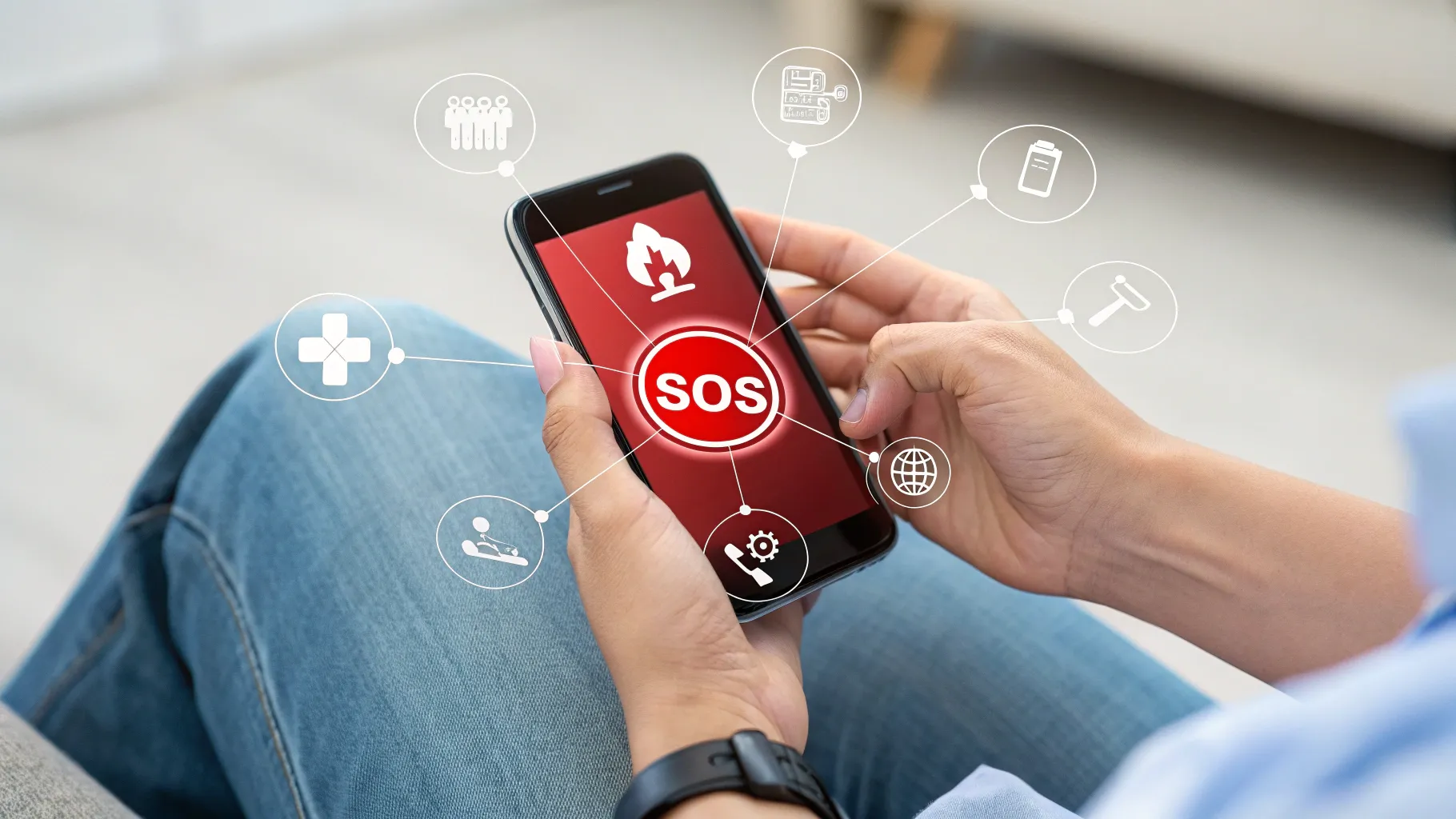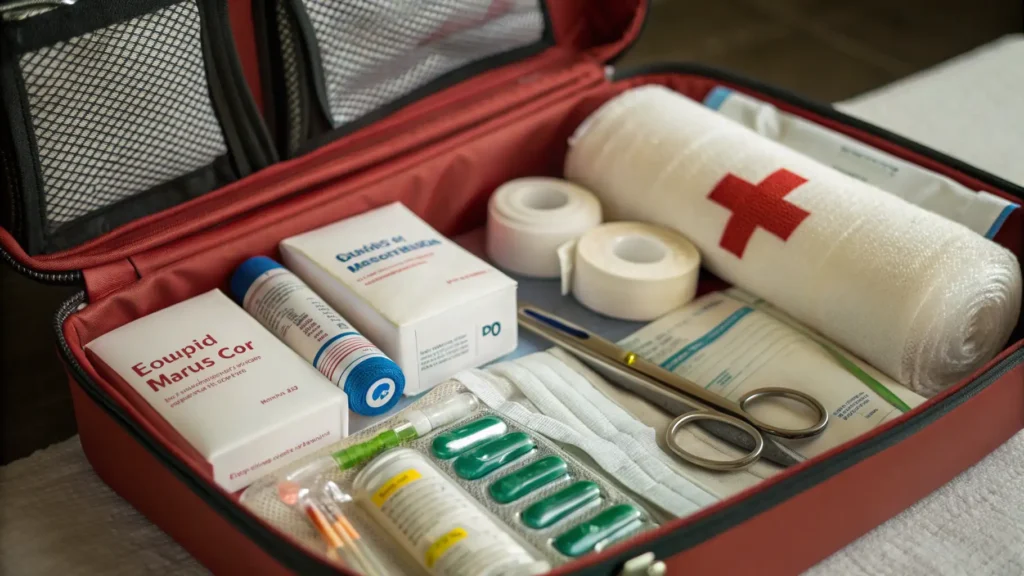5 Essential Emergency Medical Preparedness Tips for Tourists in Bali
anita ayu rustyaningtyas
September 1, 2025
8 min read

Bali is known worldwide as a paradise destination—think golden beaches, lush rice terraces, and vibrant culture. But behind all that beauty, one thing many travelers forget is how to stay prepared for a medical emergency in Bali. Nobody plans to get sick or injured on vacation, yet it happens more often than you’d expect. From food poisoning and sudden fevers to scooter accidents or minor injuries during activities, these situations can quickly ruin a holiday if you’re not ready.
In this article, we’ll walk you through 5 essential tips for emergency and urgent care in Bali. You’ll also learn how services like Emergency Medical Assistance—including a 24/7 doctor in Bali, ambulance support, and hospital coordination—can give you peace of mind while you enjoy your trip.
Emergency Medical Preparedness Tips for Bali

No one hopes to experience it, but the reality is that minor accidents on the road, food poisoning, or sudden health issues can happen at any time. To stay feeling safe, it’s a good idea to know what steps to prepare for. Here are 5 Emergency Medical Preparedness Tips for Bali that can help you stay calm and ready if an emergency arises.
1. Ensure Your Travel Insurance Covers Medical Emergencies
Many people think that travel insurance is just a formality or an extra expense that isn’t essential. However, travel insurance is the first lifesaver when you face a medical emergency abroad, including in Bali.
Bali does have international hospitals with modern facilities, experienced medical staff, and 24-hour emergency services. But medical costs can be surprisingly high for tourists who aren’t prepared. For example, staying a few days in an international hospital with lab tests could easily cost tens of millions of rupiah. In the case of emergency surgeries or intensive care, the costs can increase several times. Here’s what you should do before heading to Bali:
- Check your insurance policy: Ensure it covers international medical care, especially in Indonesia.
- Understand the claims process: Does your insurance provide a cashless system (direct payment without upfront costs) or reimbursement?
- Save emergency insurance contacts: Keep them in your phone and in a written note for easy access at any time.
- Prepare backup documents: Store a digital copy of your policy in email or cloud storage.
With these simple steps, you’ll feel much more at ease. Instead of worrying about costs, you can focus on recovering your health.
Read more: Top Hospitals in Bali for International Patients 2025
2. Save Essential Emergency Contact Numbers
One of the simplest yet most important steps while in Bali is saving emergency contact numbers. In urgent situations, speed is crucial, and often tourists don’t know who to call or may get confused when searching for important numbers during a panic. To avoid wasting precious time, it’s best to prepare an emergency contact list at the start of your trip.
- Bali Emergency Numbers (112)
This is your “fast track” number for all kinds of emergencies, including medical ones. By dialing 112, you’ll be connected to the police, fire department, or ambulance, depending on your needs. It’s similar to 911 in the US or 999 in the UK and is applicable throughout Bali. Make sure to save it on your phone or memorize it. - Important Hospitals and Clinics in Bali
In addition to the general emergency number, it’s also helpful to save the contacts of major hospitals that are used to handling international patients. Keeping these numbers gives you extra peace of mind, knowing exactly where to call in case of a serious situation. - Hotel or Villa Contact
Don’t forget to store the contact numbers for your hotel or villa’s reception. The hotel staff is usually prepared to help in emergencies and can quickly contact the ambulance, a doctor, or even accompany you to the hospital if needed. This can be a quick solution if you struggle to communicate in the local language.
Practical Tip: Besides storing these numbers in your phone, write them down on a small piece of paper and keep it in your wallet. If your phone battery dies or if you’re panicked, you’ll still have a backup to rely on.
3. Understand Bali’s Healthcare System
One thing that often confuses tourists is that Bali’s healthcare system is not exactly the same as what they’re used to at home.
Here are some key things to know:
- Advance Payment or Deposit: Many hospitals may require an advance payment or deposit before treatment, especially for international patients. This is especially common in private hospitals.
- Standards Vary: Not all hospitals in Bali have international standards. For tourists, international hospitals or large clinics are usually recommended as they have English-speaking staff and more complete facilities.
- Waiting Times: Public hospitals in Bali can be crowded, and waiting times might be longer. Private hospitals or international clinics tend to have faster services but may come at a higher cost.
This is where having access to a 24/7 concierge service or Emergency Medical Assistance becomes invaluable. With this service, you won’t need to worry about finding the best hospital on your own. Our team will handle everything from making referrals to coordinating ambulance services if necessary. So, you can focus on getting better without stressing over the logistics.
4. Pack Personal Medications and a First Aid Kit
While this may seem like a minor thing, bringing your personal medications can be a lifesaver. Many tourists forget that not all prescription drugs from their home country are available in Bali’s pharmacies.
Here are some things you should always have in your bag:
- Personal prescription medications (e.g., for blood pressure, allergies, or chronic conditions).
- Common over-the-counter medications like paracetamol, anti-diarrhea medicine, antihistamines, and rehydration solutions.
- Bandages, antiseptic solutions, and sterile gauze for minor injuries.
- Hand sanitizer and face masks for hygiene.
A small first aid kit can help you deal with minor issues without rushing to the hospital. But remember, if symptoms are serious, such as high fever, severe vomiting, or difficulty breathing, don’t hesitate to seek medical attention immediately.
5. Use Emergency Medical Assistance Services
This is the most important and practical tip. In a medical emergency, you not only need a hospital—you need fast, professional, and reliable support right from the moment the emergency occurs.
With Emergency Medical Assistance, all your medical needs can be handled from A to Z:
- Ambulance Ready Anytime: No need to stress about finding transportation in panic. Our team will arrange an ambulance to get you the care you need right away.
- Doctors Coming to Your Location: If your condition allows it, our medical team can visit your hotel or villa to conduct an initial examination and treatment.
- Hospital Coordination: We take care of all the arrangements, from registration to communication with international hospitals.
- Language and Administrative Support: You won’t need to worry about language barriers or confusing procedures, as our team will handle everything.
With this service, you’ll have peace of mind knowing that professional help is always just a phone call away.
Read more: Why Choose a Medical Concierge Service in Bali? Here’s the Answer!
What to Do During a Medical Emergency?

Despite not wanting to experience it, accidents, injuries, or medical conditions can happen unexpectedly. Below are the steps you should take to ensure you get the right help as soon as possible:
- Stay Calm: The first and most important step is to remain calm. Panic will only worsen the situation. The more calm you are, the better you can manage the situation and assist the person in need. Remember, staying calm can improve your ability to act quickly.
- Contact Emergency Numbers: Call 118 for an ambulance immediately if an injury, serious health issue, or emergency arises. In an emergency, time is critical, so don’t hesitate to make the call.
- Contact Your Hotel or Accommodation: If you’re staying at a hotel or villa, contact the reception or manager immediately. They are usually familiar with local emergency procedures and can speed up the process of getting help.
- Perform First Aid: If you or someone else is injured or experiencing a mild medical issue, perform first aid while waiting for medical assistance. Simple actions like applying pressure to a wound or performing CPR can make a difference in life-threatening situations.
- Use Medical Concierge Services: If you feel more comfortable receiving care in your location, you can use Bali medical concierge service that can come directly to your villa or hotel to provide emergency medical care.
Be Prepared for Medical Emergencies in Bali
Vacationing or living in Bali should be an enjoyable experience, but being prepared for potential medical emergencies is crucial to keeping you safe. By knowing emergency numbers, understanding how to use health insurance, and familiarizing yourself with local medical facilities, you can feel confident and secure during your stay in Bali.
If you need emergency medical assistance or want to be better prepared, Bali Premium Trip is here to help with Private Medical Concierge, including home doctor services and emergency medical assistance. We make sure you get the care you need, quickly and efficiently, so you can focus on enjoying your vacation with peace of mind.

Related Article
A Discreet 48-Hour Private Relocation from the Gulf to Bali
Bali, with its stunning natural beauty, rich culture, relaxed lifestyle,...
Bali, with its stunning natural beauty, rich culture, relaxed lifestyle, and safety, is becoming an increasingly popular choice for those...
Relocation from Dubai to Bali: The Ultimate Family Guide to Move Securely and Comfortably
Recent operational disruptions announced by Dubai Airports include suspension at...
Recent operational disruptions announced by Dubai Airports include suspension at Dubai International Airport (DXB) and Al Maktoum International Airport (DWC)....
The Ultimate Bali to Komodo Island Private Superyacht Charter: An Elite Concierge Guide
BALI, INDONESIA — At Bali Premium Trip, our high-end concierge...
BALI, INDONESIA — At Bali Premium Trip, our high-end concierge desk caters to the most exclusive travel requests across the...



